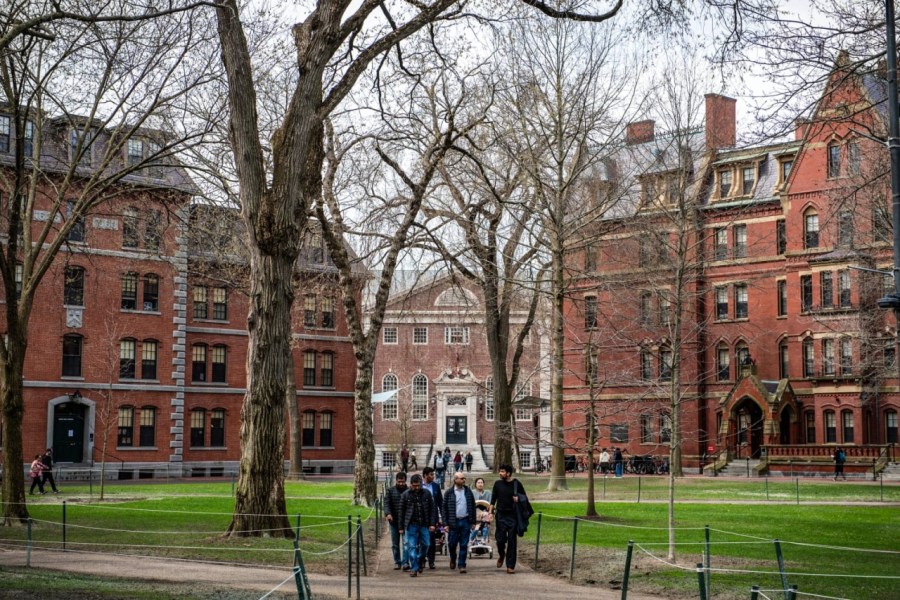Harvard Pays for Defiance as U.S. Threatens to Pull $1 Billion: What’s the Price of Academic Freedom in America?
Cambridge, MA — April 21, 2025 — A storm is brewing at the intersection of politics and academia, and Harvard University now finds itself at the eye of it. Once a symbol of unshakable academic authority, the Ivy League institution is facing the looming threat of losing over $1 billion in federal grants and research funding, a punishment for what Washington insiders describe as “ideological noncompliance.”

Already grappling with a $2.2 billion freeze on multi-year federal grants and the suspension of $60 million in contract funding, Harvard’s battle for its institutional independence has escalated into a national flashpoint.
Academic Freedom in a Political Straitjacket
The current standoff stems from a controversial letter sent by the Task Force to Combat Antisemitism, demanding sweeping changes: federal oversight of Harvard’s hiring and admissions, restrictions on student protests, and a crackdown on faculty activism. Critics argue these directives, while framed as efforts to ensure campus safety, are thinly veiled attempts to enforce ideological control under the guise of policy reform.
Harvard, in a rare public rebuttal, called the demands a “direct governmental regulation of the intellectual conditions at Harvard,” and vowed not to surrender its constitutional rights, setting itself apart from peers like Columbia University, which recently complied under similar threats.
Weaponizing Federal Dollars
This is not merely an administrative clash—it is an ideological litmus test with billion-dollar stakes. By leveraging its control over federal funds, the U.S. government is exerting pressure not just on Harvard, but on the very notion of academic neutrality and freedom. At risk are crucial research projects, global partnerships, and the ability of one of the world’s foremost academic institutions to operate without political interference.
If Harvard—the gold standard in American academia—can be pressured in this way, no institution is safe.
A Misstep or a Message?
Fueling the confusion is the bizarre twist surrounding the origin of the directive. While The New York Times reported that the April 11 letter was sent “in error” and lacked formal authorization, a White House spokesperson later confirmed its legitimacy and the administration’s continued support for its terms. Harvard has since verified the authenticity of the letter and confirmed that the funding freeze remains in effect.
Whether a bureaucratic misfire or a strategic move, the signal is unmistakable: dissent will be met with financial retaliation.
The Precedent: Dangerous and Far-Reaching
What’s unfolding at Harvard may well be the first domino in a broader campaign. If universities are forced to choose between federal funding and academic values, the risk is not just financial. It’s existential.
-
Curricula may be molded to fit ideological expectations.
-
Hiring decisions could be vetted for political loyalty.
-
Student protests might face state-sanctioned suppression.
This is not simply a story about one university’s standoff—it is a referendum on the future of American higher education.
What’s at Stake: Autonomy, Integrity, and the Soul of Academia
Academic institutions are designed to challenge the status quo, host uncomfortable debates, and foster independent thought. The current trajectory threatens to turn universities into compliant administrative arms of the state, where freedom is not a right, but a permission—revocable, conditional, and transactional.
Harvard’s stand is risky. But if it succeeds, it could redefine the contours of academic resistance in an increasingly polarized political climate. If it fails, a dangerous precedent will be set—one where funding trumps freedom.
A Defining Moment for Higher Education
As the academic world watches, one question echoes across the ivory towers:
Will American universities bow to pressure—or fight for their purpose?
Harvard’s defiance is not just about one institution preserving its grants—it is about defending the soul of education itself.




















